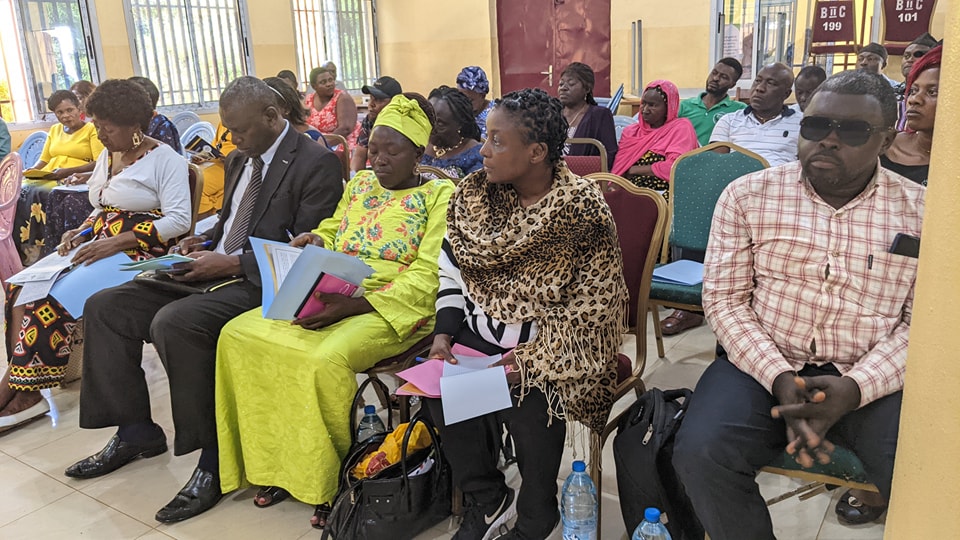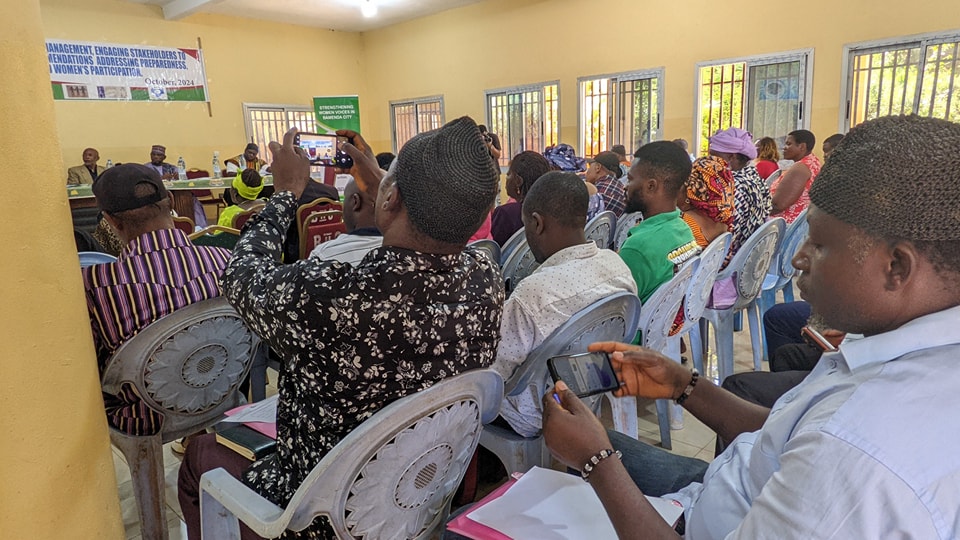CAEPA CONVENES REGIONAL DIALOGUE ON ENVIRONMENTAL PROTECTION

Community Agriculture and Environmental Protection Association CAEPA, has organized the 1st ever Regional Dialogue on Environment Management in the North West Region of Cameroon. The dialogue session brings together all stakeholders from government authorities to traditional rulers, women leaders, quarter heads and group leaders, to consolidate policy recommendations and address preparation measures, response levels and women participation on environmental hazards in the city of Bamenda.
The session saw the esteemed presence of the Regional Assembly represented by Hon. Ghejung Awunti, the Commissioner in charge of Economic Development who heartily praised the exclusive work done by CAEPA in promoting community development in the environmental domain.
I want to say that I am so impressed seeing the work that CAEPA has been able to achieve. This is an over reaching issue affecting our community. We are noting from this event that there needs to be a flow in communication of certain work that you people have done, which the public needs to know and adhere to. Secondly, we need to ensure that the task force that has been created is able to access their representatives in the council/region and the Delegation of Environment in order to ensure effective community development. We are going back very happy because solutions are already on the way given the ground work that has been laid by CAEPA.

During the session, the Programs Coordinator for CAEPA, Fenwi Linda, made presentations on the project as a whole, from inception right up to this phase. She equally conducted a remarkable handover of some hard copied policy proposal documents to Hon. Ghejung Awunti. These documents contained all the findings gotten from Bamenda II, II, and III within the life span of the project titled "Strengthening Women Voices in Bamenda City".
📋 "Strengthening Women Voices in Bamenda City"
A comprehensive project documenting findings from Bamenda I, II, and III, focusing on women's participation in environmental hazard management and disaster response.
Representing the communities are group leaders who are themselves victims of flood, landslides and the devastating effects of poorly disposed waste. At the event, we also recorded the presence of leaders of persons living with disabilities whose experiences are far more reaching in the communities. The high leveled dialogue session was coordinated by some discussions and useful deliberations.
Flood and landslide victims representing communities
Inclusive representation of persons with disabilities
Cultural authority participation in dialogue
Female leadership voices in environmental management
It is worthy to note that, during field work on the outbreak of disasters, it was discovered that, the population plays a key role in contributing to the dangers that now affect the environment. CAEPA has been able to act on this by increasing the capacities of the masses on the proper management of waste in the community, the importance of adhering to land rules when carrying out constructions and recovery measures after flood attacks.
It can be noted that, the actions of the population lies key in endangering the lives of the inhabitants. Take the case of Sisia, an area known for recurrent landslides. The inhabitants of this area have for years, been in the practice of not adhering to land construction rules. Most times, business persons construct their buildings on water channels, thereby rendering passage impossible and eventually leading to floods. Owing to all these, inhabitants face untold hardship during such periods.
Weeks ago when we had very heavy rains, my house was covered with rain water even after 5hours when the rain had stopped falling. As my children and I were trying to clean up the house, we realized that the rains brought snakes. I even discovered a snake inside my toilet pot. As if that was not enough, at night, I heard my child screaming of feeling so much cold on her leg. On getting to the scene, I realized that a snake had wrapped itself on her leg. Trust me, it was a frightening situation for my children and i. When there is flood, the water comes with snakes.
One thing that stands tall has been CAEPA's ability to establish a task force in the implementing councils in order that the masses are held responsible for their actions. This in itself redirects the public's eye away from the government and places them at the point of social responsibility in managing the affairs of issues that concern and affects them directly.
Many who are direct beneficiaries of this project are doing all within their power to stop inhabitants from dumping piles of dirt into flowing rivers. A normal practice carried out by the population when heavy rains fall. The population is discouraged from this act in order to prevent flooding and the pollution of these streams that serve as drinkable water to thousands.
This activity draws CAEPA to the close of the project as some beneficiaries and staff, highlight their view on the impact of this project.
CAEPA has been so helpful to us. The project has really been important because I have seen changes in my community which is Bamenda 1 Council. Our environment is taking balance and I believe that, having these authorities here today, will bring even more change. The dumping of baby diapers in flowing streams have greatly reduced and drainage systems have been cleaned up as a result of this project.
I want to appreciate CAEPA for involving inclusivity into the project. Persons with disability have benefitted greatly in our communities. We have added our voices to this project to see how the environment can become friendly and accessible to all. We shall continue our efforts to see to it that, we develop our community.
Overall, the impact of this project has been positive. We have successfully had community dialogues, outreach and awareness creation in communities. We have followed the beneficiaries up, understood their environmental concerns and we have worked with them. Within the confines of the project, we had the opportunity to join those at Bamenda 3, clear off waste while responding to floods. At the level of landslides, we have intervened at the Sisia neighbor. All these and more we have done to contribute our own little cent to community development in Bamenda.
CAEPA wraps up the 12 month project with this activity, The Regional Dialogue recording successes and in the course of it, identifying other areas that need intervention to address the needs of the suffering masses especially women and young girls in Bamenda, North West Region.
